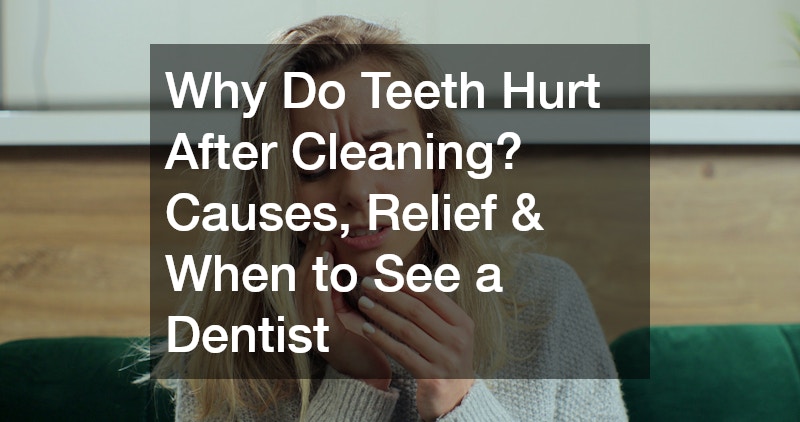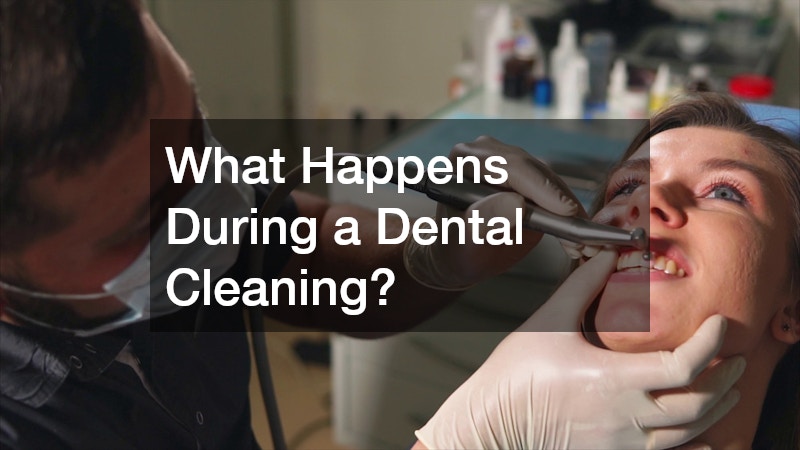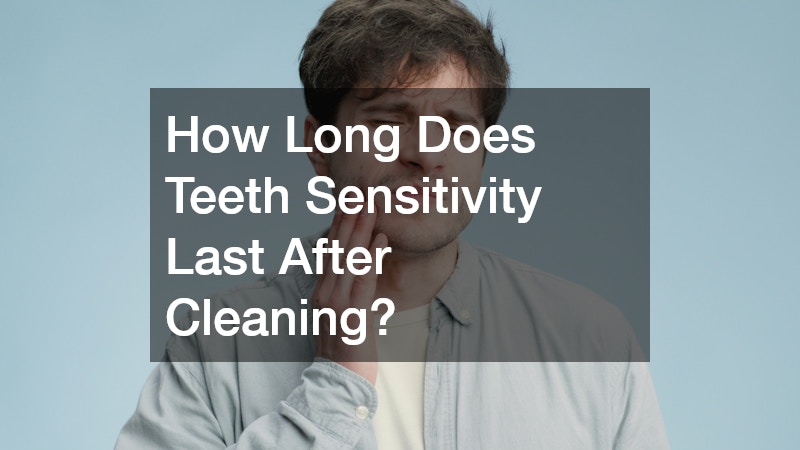
Getting your teeth cleaned by a dentist or hygienist is an important part of keeping your mouth healthy. However, some people notice their teeth hurt after cleaning, which can be uncomfortable or even painful. If this has happened to you, don’t worry — it’s a common issue that often has simple explanations. This article will help you understand why your teeth may hurt after a cleaning, what you can do to ease the pain, and when it’s important to get professional help.
What Happens During a Dental Cleaning?
Understanding what happens during a dental cleaning can help explain why your teeth might hurt afterward. A dental cleaning is a routine procedure performed by a dentist or dental hygienist to keep your teeth and gums healthy. Here’s what typically happens during the visit:
- Removing Plaque and Tartar: The first step is to remove plaque and tartar buildup from your teeth. Plaque is a sticky, colorless film of bacteria that forms on your teeth every day. If not removed, it hardens into tartar (also called calculus), which can only be removed by a professional. The hygienist uses special tools, such as scalers or ultrasonic instruments, to carefully scrape away plaque and tartar both above and below the gumline. This step is essential to prevent cavities and gum disease.
- Polishing the Teeth: After removing tartar, the hygienist polishes your teeth with a gritty toothpaste-like substance and a rotating rubber cup. This polishing removes surface stains and makes your teeth feel smooth and clean. Polishing also helps to remove any leftover plaque.
- Examining Your Mouth: The dentist or hygienist will examine your teeth and gums for signs of oral health problems, such as cavities, gum disease, or oral cancer. This early detection helps prevent more serious issues later.
- Deep Cleaning When Needed: If it’s been a long time since your last cleaning, or if you have gum disease, the dental team may perform a deeper cleaning. This may involve cleaning deeper under the gums to remove stubborn tartar and bacteria. This thorough cleaning can sometimes cause temporary sensitivity or discomfort afterward as your gums heal.
Knowing these steps helps explain why some mild discomfort or sensitivity after a cleaning is normal — your teeth and gums are simply adjusting to the removal of built-up plaque and tartar.
Common Reasons Why Teeth Hurt After Cleaning
It’s normal for your teeth or gums to feel a bit sore or sensitive after a dental cleaning. Understanding why this happens can help ease your concerns and guide you on how to care for your mouth afterward. Here are some common reasons why your teeth might hurt after a cleaning:
1. Gum Sensitivity and Inflammation
- During a dental cleaning, the dentist or hygienist scrapes away plaque and tartar from your teeth and just beneath the gum line.
- This process can irritate your gums, causing soreness, tenderness, or even mild inflammation.
- If you already have gum disease or gingivitis (inflamed gums), the sensitivity may be more intense because your gums are already fragile and swollen.
- This discomfort usually lasts for a day or two as your gums heal and adjust.
2. Tooth Sensitivity
- When tartar is removed, the protective layer over some parts of your teeth is gone, exposing more sensitive areas.
- Specifically, the dentin—the layer beneath the hard enamel—might be exposed near the tooth roots.
- This exposure makes your teeth more reactive to hot, cold, sweet, or acidic foods and drinks.
- Tooth sensitivity after cleaning is temporary and typically fades within a few days to a week.
3. Pressure and Scraping
- The tools used in cleaning, such as scalers and ultrasonic devices, apply pressure and scraping motions to remove stubborn deposits.
- This can cause mild trauma or irritation to both teeth and gums, leading to a dull ache or discomfort.
- This type of soreness is usually temporary and improves as your mouth recovers.
- Existing Dental Problems
- If you have pre-existing issues like cavities, cracked or chipped teeth, or receding gums, these may become more noticeable after cleaning.
- Cleaning removes the plaque and tartar that might have been covering sensitive or damaged areas, exposing them more fully.
- This can lead to increased pain or sensitivity until those problems are treated.
How Long Does Teeth Sensitivity Last After Cleaning?
Most people experience mild sensitivity for only a day or two after a dental cleaning. The pain usually fades as the gums heal and the teeth adjust to being clean. If sensitivity lasts longer than a week or worsens, it could be a sign of a deeper issue, and you should see your dentist.
How to Relieve Teeth Pain After Cleaning
1. Use a Desensitizing Toothpaste
Special toothpastes for sensitive teeth contain ingredients like potassium nitrate or strontium chloride, which help block pain signals from nerves in the teeth.
2. Avoid Extreme Temperatures
Try to avoid very hot or cold foods and drinks for a few days after your cleaning. Lukewarm or room temperature foods are less likely to cause pain.
3. Practice Good Oral Hygiene
Continue brushing and flossing gently with a soft-bristled toothbrush. Keeping your mouth clean helps gums heal faster and reduces irritation.
4. Rinse with Warm Salt Water
Mix ½ teaspoon of salt in a cup of warm water and rinse your mouth several times a day. This can soothe inflamed gums and reduce pain.
5. Use Over-the-Counter Pain Relief
If the pain is bothering you, over-the-counter painkillers like ibuprofen or acetaminophen can help reduce inflammation and discomfort.
When to See a Dentist
While mild pain and sensitivity after cleaning are normal, there are times when you should see your dentist promptly:
- If pain is severe or lasts more than a week
- If you notice swelling, bleeding, or pus around your gums
- If you have fever or other signs of infection
- If pain comes with a cracked or loose tooth
- If pain worsens when eating or drinking certain foods
Your dentist can check for underlying problems like infections, cavities, or gum disease that might be causing prolonged pain.
Preventing Pain After Dental Cleanings
While some mild discomfort after a dental cleaning is normal, there are several steps you can take to reduce the chances of your teeth hurting afterward. Following these tips can help keep your gums and teeth healthy and minimize sensitivity:
- Visit the Dentist Regularly
Regular dental visits, typically every six months, help prevent heavy tartar buildup. When plaque and tartar are removed consistently, cleanings are less invasive and cause less irritation. - Maintain Daily Brushing and Flossing
Brushing twice a day and flossing daily keep your gums healthy by removing plaque before it hardens into tartar. Healthy gums are less likely to become inflamed or sensitive during cleaning. - Use Toothpaste for Sensitive Teeth
If you often experience tooth sensitivity, switch to a toothpaste designed for sensitive teeth. These products contain ingredients that help block pain signals and strengthen enamel, reducing discomfort after cleanings. - Avoid Acidic or Sugary Foods
Acidic foods and drinks (like citrus fruits, soda, and vinegar) can weaken enamel and irritate gums. Sugary foods promote bacteria growth, increasing the risk of plaque buildup and sensitivity. Avoiding these before and after your cleaning can help protect your teeth. - Discuss Past Sensitivity with Your Dentist
If you’ve had pain or sensitivity during or after past cleanings, let your dentist know. They can adjust their techniques or recommend treatments to help prevent discomfort next time.
Taking these preventive steps can make your dental visits more comfortable and keep your smile healthy long-term.
Can Teeth Hurt After Cleaning If You Have Sensitive Teeth?
If your teeth are sensitive, it’s common to feel more discomfort right after a cleaning. This happens because sensitive teeth have exposed areas where nerves react more easily.
Why sensitive teeth hurt more after cleaning:
- Enamel may be worn down, exposing the nerves inside your teeth.
- Cleaning removes plaque that might have been protecting sensitive spots.
- Exposed nerves react to touch, temperature, or pressure during and after cleaning.
How to reduce sensitivity before and after cleaning:
- Tell your dentist or hygienist about your tooth sensitivity.
- Use special toothpaste made for sensitive teeth before your visit.
- Consider professional treatments like fluoride applications or desensitizing gels.
- Avoid very hot, cold, or acidic foods right after cleaning.
When to see your dentist:
- Sensitivity lasts more than a few days.
- You experience sharp pain during normal daily activities.
- Your dentist may recommend treatments such as bonding or sealants to protect exposed areas.
When Professional Treatments Can Help Reduce Sensitivity After Cleaning
If pain after cleaning continues or is severe, professional dental treatments can provide relief.
Common professional treatments to reduce sensitivity:
- Fluoride varnish: Strengthens enamel and reduces nerve reactions.
- Dental sealants: Protective coatings that shield exposed tooth areas or roots.
- Desensitizing gels: Applied in the office or used at home with custom trays.
- Gum graft surgery: Covers exposed roots if gum recession causes sensitivity.
Benefits of professional treatments:
- Provide faster relief than over-the-counter products.
- Offer long-lasting protection for sensitive areas.
- Help prevent future pain by strengthening teeth and gums.
When to consider professional help:
- Sensitivity lasts more than a few days after cleaning.
- Over-the-counter toothpaste doesn’t provide enough relief.
- Pain interferes with eating or drinking normally.
Summary
Teeth hurting after a dental cleaning is common and usually temporary. The pain is often due to gum irritation, exposed tooth surfaces, or pressure from cleaning tools. Most discomfort fades within a few days and can be eased with sensitive toothpaste, warm salt water rinses, and gentle care.
If the pain is severe or lasts too long, it’s important to see your dentist to rule out infection or other dental issues. Taking good care of your teeth between cleanings and communicating with your dentist about any sensitivity can help you avoid pain after your visits.


